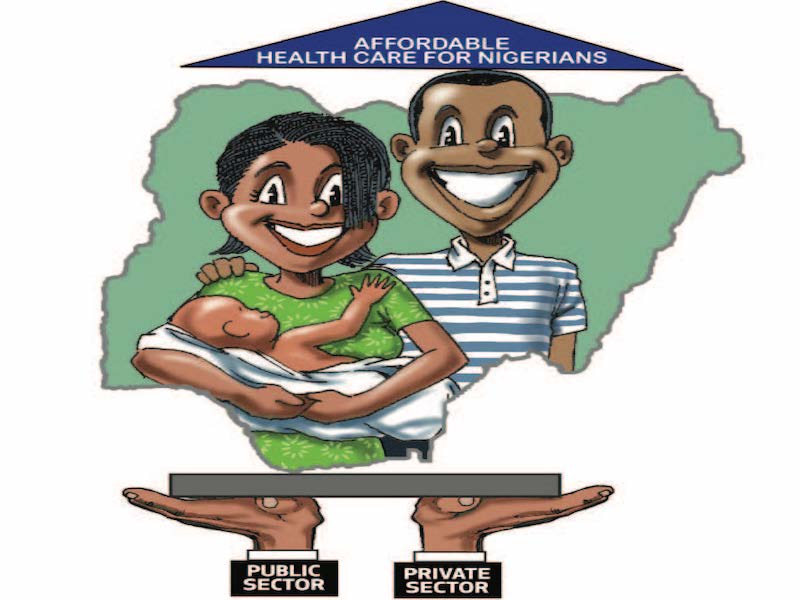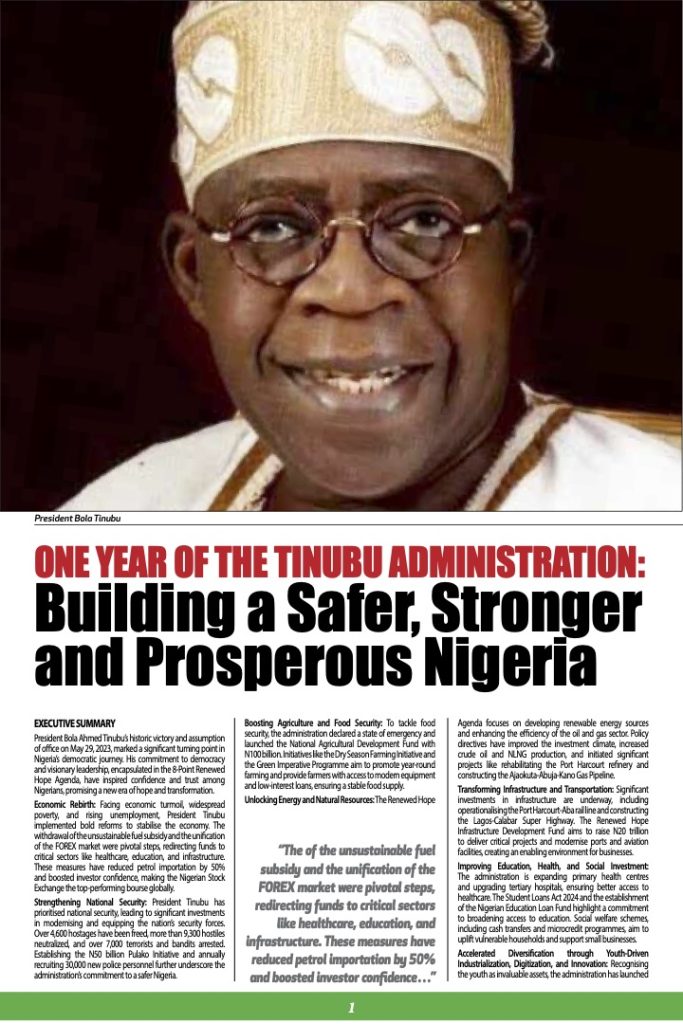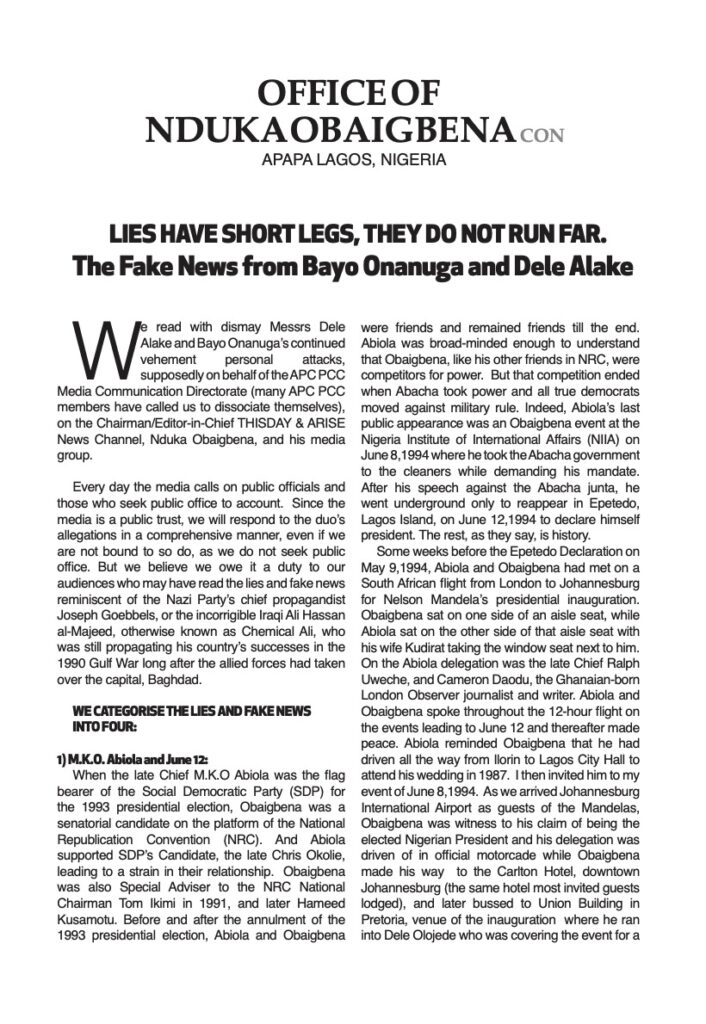Latest Headlines
GATES, PATE AND SECURING PUBLIC HEALTH

PAUL A. OBI writes that the application of vaccines and immunisation determines the strength of nations to fight preventable diseases
“The Return on investment in global health is tremendous, and the biggest bang for the buck comes from vaccines. Vaccines are among the most successful and cost-effective health investments in history.”
Seth Berkley,
American epidemiologist and former CEO, Gavi, The Vaccine Alliance (2011 – 2023)
The conversation on global public health for nearly a century now has been steeped and submerged in conspiracy theorists and the narrative battles of cost and effect of vaccines and vaccination, largely. In the same stretch, the greatest encounter of modern medicine has chiefly been the scientific discovery in which a single dose of vaccine could save millions from death and the world itself from epidemic catastrophe. Today, with scientific sophistication, the world has resolved the challenges of Covid-19 – all thanks to vaccines. At the moment, a similar feat is being enacted as scientists move closer to using vaccines to end the HIV pandemic. But over the years, the drawback on vaccines has been recorded in both advanced democracies of the west and the developing world, particularly, in Africa. The bone of contention in all of these, principally, stemmed from the deficit of public (dis)trust on the state, governmental institutions and multilateral agencies. In many African states, the government is regrettably a prime suspect – even erroneously, before the eyes of citizens.
This is because most African governments have continually broken and breached the social contract agreement between the government and the governed. This is due to failure of the state to fulfil the mandate of that social contract and the material welfare of the citizenry. Thus, when governments failed woefully to live up to the dictates of this element – provision of welfare; providing life-saving vaccines obviously becomes a huge cross to bear. Rural communities in Africa often have suspicion of government distributing vaccines when the same government cannot address poverty or end illiteracy. This has been the bane of vaccines, mostly, in Africa, and even Nigeria, where myths, stereotypes, and now disinformation, misinformation and infodemic have now been added as obstacles. Beyond these challenges, the role of global institutions like the Bill and Melinda Gates Foundation has stood the test of time far outside the operations of other global bodies within the global healthcare system, particularly, with regard to vaccines and immunisation.
With the Gates Foundation, Gates tops world donors in donations to global public health. In Africa, the Foundation ranks topmost, and in Nigeria, Gates Foundation funding to education, healthcare, immunization, maternal health and vaccination projects remain remarkable. In Nigeria, Gates donations run into billions of dollars, and has never stopped giving to Africa’s most populous nation. Over the years, the Gates Foundation funding includes immunization for child-killer diseases like measles; polio immunization, primary healthcare delivery services, maternal health, infant health care, healthcare commodities among others. More so, with more than passive support for the country, Gates holds Nigeria dear to his heart. This was reflected last week during the summit organized in Abuja by the Federal Ministry of Health and Social Welfare, and the National Primary Health Care Development Agency (NPHCDA) for members of Northern Traditional Leaders’ Committee on Primary Health Care Service Delivery (NTLC).
At the summit, where Gates frowned over the overt fixation on local manufacturing of vaccines, he applauded the efforts made so far, adding that, “we’ve made tremendous progress together; with continued collaboration and focus, we can finish the job on polio and significantly boost immunization coverage, ensuring better health for all Nigerian children.” However, Gates also had one or two words for Nigerian leaders, stating that, “by putting the Nigerian people first, Nigeria’s leaders can build a better future; I still believe in the grand vision of Nigeria’s future, and that future depends on all of you,” Gates added. The American billionaire and the world’s highest giver and donor at the sidelines of the National Economic Council (NEC), further explained that “we spend a lot in Asia, but we spend even more in Africa. The country we spend the most in Africa is Nigeria. I feel glad that things like the child mortality rate have come down, but we could do a lot better. Our work is almost entirely primary health care because the impact per dollar is dramatically greater than anywhere else,” Gates said.
Further, at the home front in Nigeria, Gates has an energizer and a stellar policy maker in the person of the Coordinating Minister of Health and Social Welfare, Prof Muhammad Ali Pate. On issues of vaccines, vaccination and immunization in Nigeria, no one does it better compared to Pate, who has more than cognate experience on how to tackle child-killer diseases. At the intersection of policy, public health and practical steps towards fighting vaccines preventable diseases like polio, Pate has the technical know-how to stem the tide of such public health related challenges in Nigeria. Additionally, Pate has the full grasp of what role traditional and religious institutions and leaders can do as stakeholders in promoting immunization and pushing front and centre the critical task of vaccine acceptance in Nigeria, and ensuring that vaccines preventable diseases are continually kept at bay.
Yet, as James Colgrove in his book, The State of immunity: The Politics of Vaccination in Twentieth-Century America observed, the most fundamental cases of tensions and claims of coercive energy in public health remains the issues of vaccination and immunization. That said, Nigeria holds the ace on how much some of these vaccine preventable diseases are erased completely from the surface of the earth. Take polio for instance, Nigeria’s frantic efforts to end polio appears to be nearing the finish line. Yet, it is the combined efforts of Gates’ generosity with billions of dollars in donations on the one hand, and Pate’s technocratic experience to tele-guide the best health policies and outcomes that Nigeria is able to turn the page in healthcare service delivery. This combination is very instrumental to how Nigeria set the pace on global health through the deployment of vaccines and the attendant immunization. Thus, the NTLC summit came at no better time than now, when the difference between a healthy society and pandemic lies in the use of vaccines.
Further, with other leaders like founder and chairman of the Dangote Group, Alhaji Aliko Dangote; the Sultan of Sokoto, Sa’ad Abubakar III; Executive Director of NPHCDA, Muyi Aina, Gates and Pate are forming a strong coalition for a global health initiative that is defined by the relativity with vaccines as a precursor to saving many from a world that susceptible to pandemics and epidemics. The inclusion of Northern Traditional Leaders Committee (NTLC) in such new vaccines’ coalition with Nigeria as the rallying point is capable of positioning Nigeria as the locale for change on how vaccines are the most critical instrument for resetting global public health. With the buy-in from the traditional and religious institutions, the next battle lies in Nigeria’s ability to overcome the pitfalls of disinformation, misinformation, infodemics, fake news and manufactured myths all targeted against vaccines and immunization. This is one area where both the Federal Ministry of Health and Social Welfare and the NPHCDA have not deployed enough proactive measures to defeat conspiracy theories. That is an area that the Gates Foundation needs to support Nigeria, specifically, NPHCDA.
In the end, the recognition of the nexus of health security in relation to economic growth, governance, national security and general wellbeing of a society have been the cornerstone of global discourse on global health. Stretching further, vaccines tend to correlate the extent to which a society is healthy or not. It is the application of vaccines and immunization that determine the strength of nations to fight preventable diseases. In all facets, vaccines potentially direct the shape and pathway a nation’s public health takes. For Nigeria, with Gates and Pate leading the charge and pushing the frontiers of vaccines, this is the best of times for the country. These efforts and partnership in the long run demonstrate the required synergy to further equip Nigeria’s public health for good. Therefore, as Berkely stated above, there can be no other cost-effective investment on public health comparable to vaccines. In vaccines, Nigeria’s long-awaited dive for eradication killer diseases beckons.
Obi is a lecturer, journalist and researcher based in Abuja

















